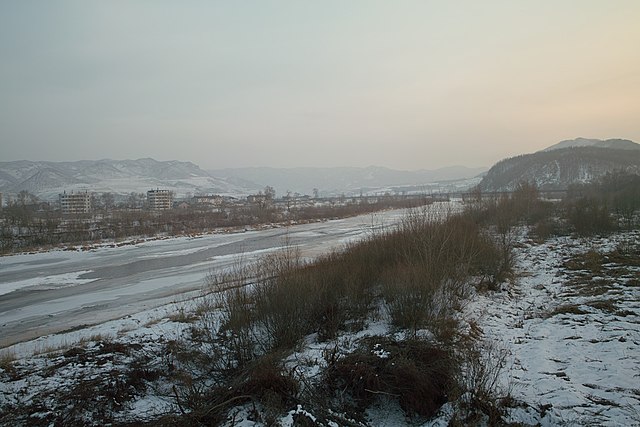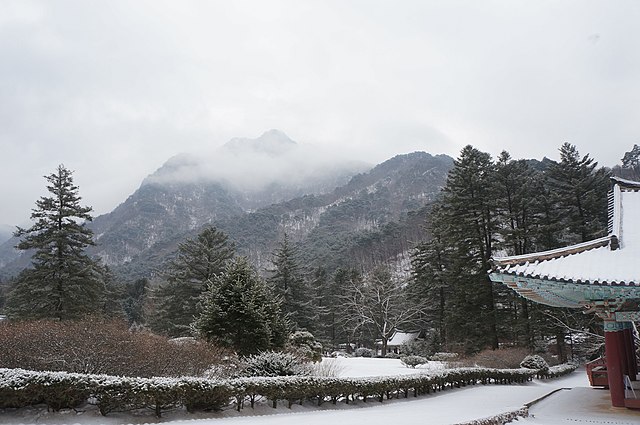
Thammasat University students interested in history, political science, international affairs, Asian studies, and related subjects may find it useful to participate in a free 15 December Zoom seminar on Dialogue with Dictators: The Costs and Benefits of High-Level Diplomacy with North Korea.
The event, on Thursday, 15 December 2022 at 2pm Bangkok time, is presented by the University of Tokyo.
The TU Library collection includes many books about different aspects of political life in North Korea.
The speakers will be Dr. Alastair Morgan, former British Ambassador to North Korea, and Associate Professor Meredith Shaw of the Institute of Social Science, The University of Tokyo.
The event webpage explains:
What can be gained from holding high-level summits with a “rogue state” like North Korea? Do those potential gains outweigh the risk of lending prestige and legitimacy to a dictatorial regime? Two speakers will lead a critical discussion of these questions.
Ambassador Alastair Morgan discusses the high-level meetings with the DPRK in 2018-19, and Dr. Meredith Shaw explains how summits are depicted in North Korean domestic propaganda.
Students are invited to register at this link.
For further information, please write to:
tokyo.college.event@tc.u-tokyo.ac.jp

In the Asia Pacific Bulletin in 2019, Dr. Kavi Chongkittavorn noted:
Thailand-North Korea ties have long escaped international scrutiny since the two countries first established diplomatic relations on 8 May 1975. Thai-North Korea friendship and cooperation have developed with ups and downs reflecting the prevailing regional and global security environment. North Korea was the first communist country to officially recognize Thailand. In the absence of any outstanding bilateral disputes, both countries found it easy to get along despite ideological differences that further diminished when the Cold War ended. Pyongyang was eager to forge ties with Bangkok to end international isolation and counterbalance South Korea’s influence in Southeast Asia.
Some diplomatic hiccups occurred between the 1980s and 2000s that directly complicated relations. After the failed attempt by the North Korean Embassy in Bangkok to kidnap one of its staff members who planned to defect, bilateral ties plunged. Since then, Bangkok, has refused to consider Pyongyang’s requests for additional diplomats to its mission in Thailand.
Still, overall ties were cordial during the 1990s due to Pyongyang’s support of the Thailand-ASEAN campaign to drive out Vietnamese troops from Cambodia. In September 2000, Pyongyang asked Bangkok to withdraw its miniature flag from the demilitarized zone in Panmunjom. So far, Thailand has not complied with the demand, reaffirming that until there is a peace treaty replacing the current Armistice agreement, the Thai flag would remain. In 2000 Thailand persuaded North Korea to join ASEAN Regional Forum (ARF), a regional security framework. However, Thailand’s plan to invite North Korea to attend the Asia-Pacific Economic Leaders Meeting in Bangkok in 2003 was aborted due to a report that emerged at the end of 2003 about a Thai woman, named Anocha Panjoy, allegedly abducted by a North Korean secret agent in Macao in 1986. The Thai Foreign Ministry, under pressure from human rights groups, Anocha’s family, and the Thai public took up the issue with Pyongyang, which has yet to respond.
Before 2006, Thailand and North Korea had among the best bilateral relations in Southeast Asia, with strong economic, educational, and agricultural ties and cooperation. Ties weakened when North Korea started testing ballistic missiles in July 2006 and conducted its first nuclear test in October that year. Along with other ASEAN members, Thailand has been condemning North Korea’s nuclear weapons activities and ambitions. After 2006, Thai-North Korea relations were sluggish, with increasing scrutiny from the international community. Bilateral trade between 2014 and 2017 decreased to $9.9 million — a pittance in comparison with other trading partners. Thailand imported scrap iron, raw silk, and medicine from North Korea. In return, it exported food stuffs and computer and machine parts.
However, with the latest development in US-North Korean relations and improving inter-Korea ties, opportunities are open for Thailand as well as ASEAN to play a facilitating role on the Korean Peninsula.
Sanctions and Denuclearization
Despite the historic summit between President Donald Trump and North Korean Supreme Leader Kim Jong-un in June 2018, the US government continued sanctions pressure against North Korea including via Southeast Asian countries—some of which still have not closed all the loopholes in implementing relevant UN Security Council resolutions on sanctions against Pyongyang. The last half of 2018 witnessed a series of shuttle diplomacy visits by senior US officials to North Korea’s key trading partners—including to Thailand on December 16 by Special Representative for North Korea Joseph Yun. Yun strongly urged Thailand to play a constructive role in the US standoff with North Korea and at the same time assert maximum pressure by downgrading ties with Pyongyang. Specifically, the Trump administration pressed hard for Thailand to strengthen its sanctions regime under relevant United Nations Security Council resolutions, particularly on trade and financial measures.
Even earlier, and in the context of a dramatically improved Thai-US relationship under President Trump’s administration, Thailand readily agreed to abide by Washington’s request to stop trading with North Korea. During the first nine months of 2017, bilateral trade was a mere $1.61 million, a 94% drop from the same period in 2016, equivalent to a tiny 0.0004% of Thailand’s total trade. The Thai military administration promised to sever all exports and investment by the first quarter of 2018.
To further show solidarity with the United States, Thailand joined 19 other countries at the Foreign Ministerial Meeting on Security and Stability on the Korean Peninsula in Vancouver co-hosted by Canada and the United States on January 15-16, 2018. This was a high-level meeting to increase pressure on North Korea to implement its pledges on denuclearization. At the meeting, Thailand stressed the importance of diplomacy and continued dialogue with Pyongyang. In line with the international community, Thailand would not recognize North Korea as a nuclear power, reaffirming that its ongoing nuclear weapons program was considered a global security threat.
As the current 2019 ASEAN chair, Thailand can engage North Korea both bilaterally and via the ASEAN-led mechanism. At the first informal ASEAN foreign ministerial retreat in Chiangmai on January 17-18, 2019, Thailand and ASEAN were quick to welcome the latest positive developments on the Korean Peninsula and the prospect of a second Trump-Kim summit planned for the end of February. ASEAN leaders also welcomed various initiatives and efforts by South Korea, the United States, and China to promote dialogue with North Korea and the latter’s commitment to complete denuclearization including refraining from further nuclear and missile tests. The ASEAN retreat’s statement also took note of international efforts to bring about the complete, verifiable, and irreversible denuclearization of the Korean Peninsula.
Thailand and ASEAN have already crafted their unique role in trying to ease tensions between Washington and Pyongyang. ASEAN members such as Singapore — which was the venue of the first Trump-Kim summit — and Vietnam, which could be the venue for the second summit, showed the bloc’s constructive role in facilitating the denuclearization process and helping reduce tensions in East Asia. In April 2017, North Korea appealed to ASEAN to help ease tensions with the United States.
While ASEAN might halt trading with Pyongyang, the bloc continues to pursue dialogue through diplomatic channels. Thailand-North Korea ties will continue to evolve and grow in strength if Pyongyang is committed to denuclearization pledges, as outlined in the Panmunjom Declaration and the Trump-Kim joint statement. If there is tangible progress on denuclearization, the ASEAN chair could invite the North Korean leader Kim Jong-un to Bangkok for a gathering with other global leaders as part of the bloc’s year-end summit.

(All images courtesy of Wikimedia Commons)
